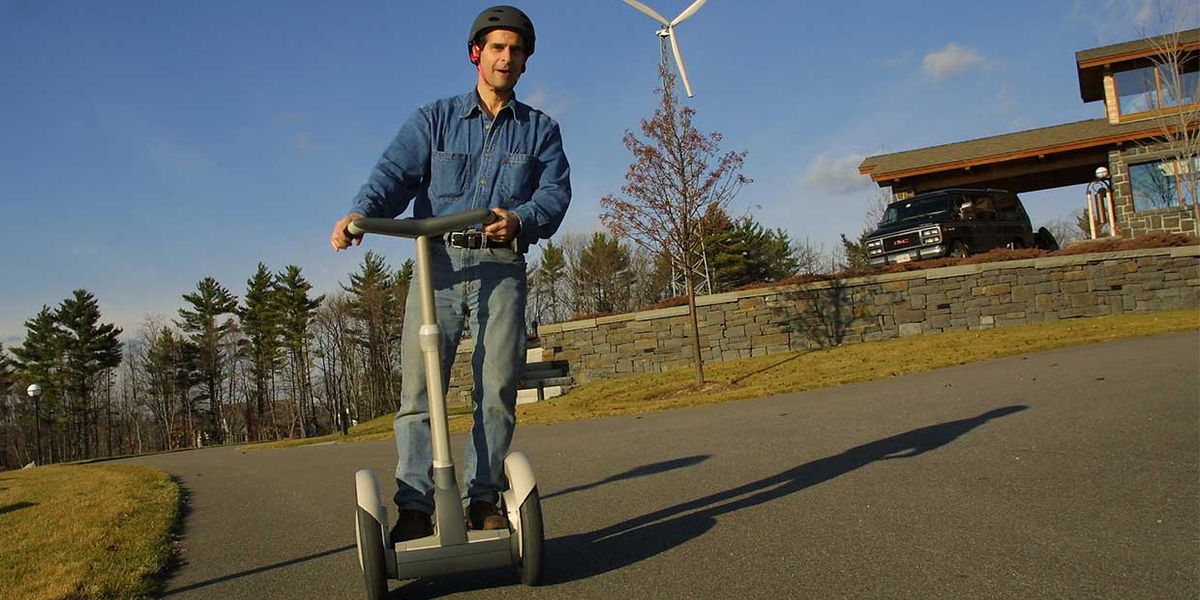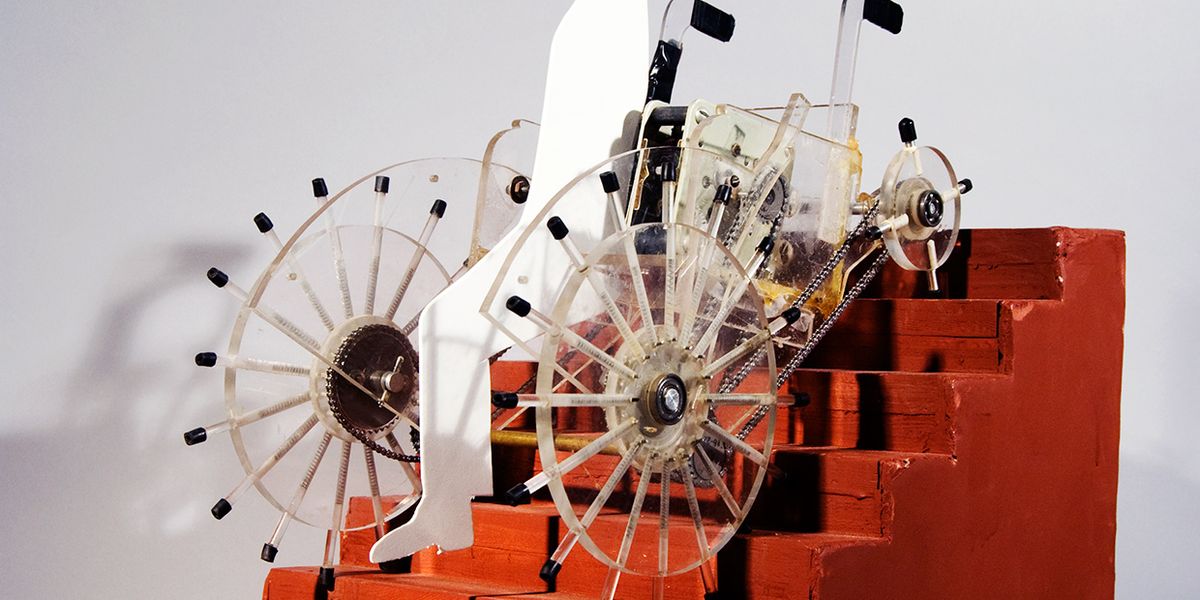iBOT

The iBOT is a powered mobility device for people with disabilities. With the iBOT, users can climb stairs or curbs, go through rough terrain like sand and snow, and balance on two wheels.
- Creator
(Originally invented by Dean Kamen at DEKA. In 2019, Mobius Mobility started manufacturing and distributing a new version, the iBOT Personal Mobility Device.)
- Year
- 1999
- Country
- United States 🇺🇸
- Categories
- Features
Did you know?
Dean Kamen, founder of DEKA Research, invented the iBOT after seeing a man in a wheelchair struggling to go up a curb to enter a mall.


History
Research and development on the iBOT all-terrain wheelchair began in 1990 at DEKA, founded by inventor and entrepreneur Dean Kamen. Kamen had the idea for the iBOT after seeing a man in a wheelchair struggling to go up a curb to enter a mall. During development, the iBOT's code name was Fred Upstairs, after Fred Astaire, because it was agile and capable of climbing stairs.
The first version of the iBOT was publicly announced in 1999. Johnson & Johnson's Independence Technology partnered with DEKA, investing $100 million to license and commercialize the technology. The iBOT 3000 launched as a medical device in 2003, with models ranging in price from $22,000 to $29,000, of which Medicare would cover only about a fourth. An upgraded version, the iBOT 4000, launched in 2005. Sales of this model continued until 2009, when Independence announced that it was discontinuing production.
Kamen and DEKA kept working on it, though. Starting in 2012, a new model proposal began going through the FDA approval process. Development of this version started in 2014, with a design featuring several enhancements over the previous one. In 2018, the next generation iBOT received FDA clearance. The same year, Mobius Mobility, in Manchester, N.H., was formed to sell and distribute the new model, called the iBOT Personal Mobility Device. Production started in 2019.
The latest iBOT specs feature reduced weight, new battery technology, streamlined user controls, and wider selection of seating options, while still offering the signature capabilities that made the platform famous since Dean Kamen first unveiled it: Ability to drive over rough terrain, go up and down curbs and stairs, and balance on two wheels.
To make iBOT more accessible, Mobius Mobility can help users with information about insurance coverage, iBOT for veterans through a VA facility, and financing options.


More Images

Specs
- Overview
• In Balance Mode, iBOT balances on two wheels to help users reach up high, move, and interact with others at eye level.
• Terrain-following technology allows the iBOT seat to remain level, while the power base pivots to keep the user balanced and level, mimicking human movement.
• The iBOT's powerbase has a sealed design and allows for hosing off the dirt and grime.
• Overall system dimensions vary with seat size and accessories, which are configured for each user.
• Seat-to-floor height: Standard Mode: 47 cm (18.5 in); 4-Wheel Mode: 64.5 cm – 77.2 cm (25.4 in – 30.4 in); Balance Mode: 77.5 cm – 90.9 cm (30.5 in – 35.8 in)
• Max speed: Standard Mode: 10.9 km/h (6.8 mph); 4-Wheel Mode: 8.2 km/h (5.1 mph); Balance Mode: 5.7 km/h (3.5 mph)
- Status
Ongoing
- Year
1999
- Website
- Width
- 69.7 cm
- Height
- 47 cm (seat-to-floor height in Standard Mode)
- Length
- 83.5 cm
- Weight
- 76.4 kg
- Speed
- 10.9 km/h (Standard Mode)
- Sensors
Pitch, roll, and yaw sensors, motor position, motor temperature, and battery status, among others.
- Actuators
Brushless DC drive motors for drive wheels, seat height, and stabilization.
- Degrees of Freedom (DoF)
- 4 powered DoF (right wheel, left wheel, seat height, and cluster rotate)
- Materials
Cast aluminum, steel, plastic, rubber, and soft goods for seating.
- Compute
Redundant 32-bit embedded microcontrollers for motor control and sensor processing.
- Software
Proprietary embedded software developed specifically for the iBOT PMD running on a real-time operating system.
- Power
4 or 6 lithium-ion battery packs. Standard four-battery configuration provides up to 21.7 miles (35 km) of range per charge, depending on mode usage. An optional upgrade adds two additional batteries.
- Cost
- US $32,000 (base equipment package; seating accessories and options such as range extension batteries, lighting, and tire selection add to base price)







